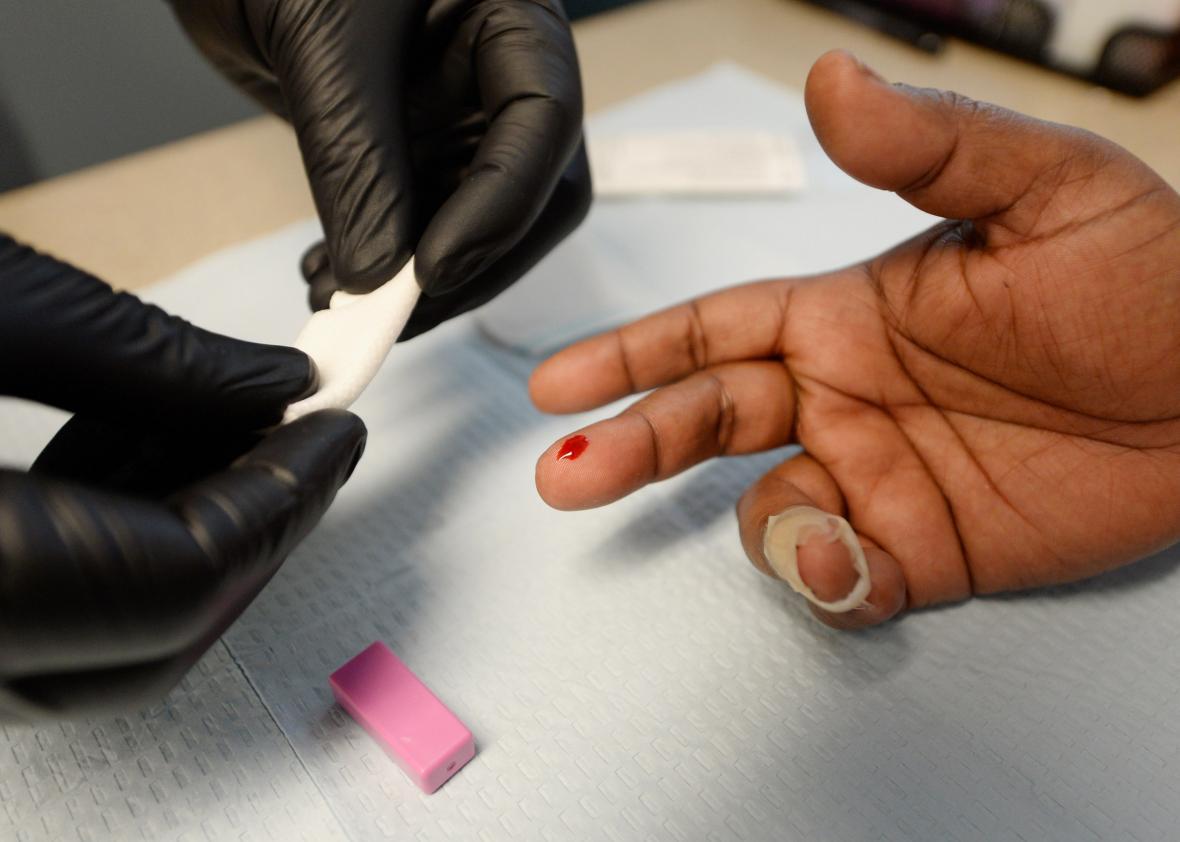Sobering news came from the CDC Tuesday: According to a major new study that covers all 50 states and the District of Columbia, about 1 in 2 black and 1 in 4 Latino “men who have sex with men” are projected to be diagnosed with HIV in their lifetime if current trends hold. (MSM is a public health category that covers gay and bisexual men as well as those who for whatever reason eschew those labels.) As a comparison, the study found that white MSM face odds of 1 in 11, while members of the MSM community as a whole are looking at a 1 in 6 chance. These rates are markedly higher than those for straight groups (1 in 241 for women and 1 in 473 for men); the overall risk of infection to Americans is 1 in 99—an improvement since the previous stat of 1 in 78, which drew on data collected in 2004-05.
The new study, which used diagnoses and death rates from 2009-13 to extrapolate into the future, also looked at geography and found that individuals living in the South encounter more risk than those in other regions of the country. Washington, D.C., saw the highest rate at a 1 in 13 chance of an HIV-positive diagnosis.
That’s a lot of numbers, but the takeaway is this: Black and Latino MSM, in facing a risk of HIV infection that’s wildly disproportionate to other populations, are embroiled in a genuine public health emergency. Of course, this won’t come as news to advocates already working on HIV/AIDS among those groups; but it reiterates the need for education, community-specific messaging, and, above all, access to prevention tools in the effort to stem the tide. Jonathan Mermin, director of CDC’s National Center for HIV/AIDS, Viral Hepatitis, STD, and Tuberculosis Prevention, expressed the urgency of the findings in a statement:
As alarming as these lifetime risk estimates are, they are not a foregone conclusion. They are a call to action. The prevention and care strategies we have at our disposal today provide a promising outlook for future reductions of HIV infections and disparities in the U.S., but hundreds of thousands of people will be diagnosed in their lifetime if we don’t scale up efforts now.
Indeed, never before have we had such a rich suite of HIV prevention options, ranging from the tried-and-true like condoms to the cutting edge like PrEP, the taking of a daily pill to prevent infection if one is exposed to the HIV virus. We also now know that HIV-positive individuals who are receiving the proper treatment—becoming “undetectable” in the current parlance—essentially cannot transmit the virus to others. The trouble is, obtaining a prescription for PrEP or, for those who have seroconverted, getting the proper medical care, can be challenging for MSM of color, due to structural inequality and internal community stigma around homosexuality and HIV status. This study proves that overcoming those obstacles to access is more urgent than ever.
